Ron Egatz, New York Times Bestselling Author
Last autumn, a woman—whom I’ll call Debbie for this account—was looking for a features writer to build content for a magazine she was getting off the ground. A product of my age, I still love a beautiful, glossy print magazine full of great profiles and feature stories. Debbie’s magazine was to showcase local human interest stories, and this dovetailed nicely with a “living locally” lifestyle I embraced about a year and a half earlier. It felt like a great match.
I reached out to Debbie with a few lines about freelance research, editing, and writing skills I could offer her. I listed writing awards I’d won, and attached a résumé. Eventually, we met at a local café. She gave me copies of a 12-page, full-color, digitally-printed publication. I’m more known for my creative writing than my journalism, so being inventive and not without mirth, I’ll call Debbie’s new magazine Hudson Entropy.
It was apparent I could write the stories the publication needed. When I write for money, profiles are my favorite types of articles. I can transform a notoriously vicious alcoholic into a virtuous icon for her industry’s leading publication, and a failed athlete college dropout who sends unsolicited photos of his genitals to a coworker appear sympathetic in a screenplay. I told Debbie my rate for feature stories, and her budget was twenty percent of what I usually bill. You read that right: not eighty percent of what I charge. Just twenty.
Looking at her magazine, it was obvious what she had gotten herself into. The publication was more of a newsletter. The photos in her stories were not color corrected or even exposed properly. Whatever she was paying for graphic design was too much, and whoever did her prepress was ripping her off. The advertisements, which were numerous, had better attention to prepress than the editorial content of the publication. The body copy was flush-left, rag-right; hardly a professional look for a magazine. The leading between photos and captions was egregious, and even sported both inconsistent margins and inconsistent indentation. Uniform application of type styles throughout was missing, particularly in titles and subheads. If the publication was designed in QuarkXPress or InDesign, someone hadn’t bothered to grok height and justification tables. The cover sported headlines with bad drop shadows, giving the appearance it was designed in 1996.
I said nothing about any of this. It was her show, and she thought it was a good idea to get a local print publication off the ground in 2016. She didn’t have the funds nor notion to hire me as a turnaround consultant to create a real periodical. Debbie needed all the encouragement she could get, or a good talking to about timely global business trends from a reputable career counselor.
A perennial champion of the underdog, I couldn’t resist. It would be nice to see her turn Hudson Entropy into a real magazine. Writing profile stories is my favorite kind of freelance journalism, and I hadn’t been doing much of it lately. If I could muster the bandwidth and energy, I could be part of those helping nudge this long-shot effort towards success by writing a few features a month for next to nothing. I was, after all, living locally.
It literally took seconds of research to grasp the construct behind Debbie’s newsletter, and what she had gotten herself into. Debbie had partnered with a company I’ll call Vapor Content Publishing. V.C.P. is run out of a post office box in small Wisconsin city. If you go to their site looking for magazine content, you’ll quickly see where the emphasis of their business model lies. The navigation on their site is extremely telling. Work For Us, Advertise, Submit Content, and bringing up a distant fourth place, See Publications. In other words, V.C.P. is all about selling. Content comes last for this publishing venture; almost an afterthought.
Vapor Content Publishing also publicly invites anyone to contribute content. You might be a writer or a photographer looking to get a foothold as a journalist or photojournalist. You might not know the local Debbie in your area who has already partnered with Vapor Content Publishing. Why not go right to the source by hitting their corporate site? Here’s an open invitation to begin building your résumé! Send your content in, kids! The only problem is before you get to have a financial discussion with V.C.P. or find out if they’re interested in publishing your content, Vapor Content Publishing already owns it. Yep. That’s correct. By merely submitting your content for consideration, Vapor Content Publishing claims full ownership of what you send them. Think about that while you wait to hear if they’ll pay you for publishing it. This is like putting an item up for sale on eBay, and eBay informing you, regardless if it sells or not, they own it. A freelancer submits text, photos, story ideas, charts and graphs, or anything else to V.C.P. in the hopes of getting paid for it, and the content creator is then pushed out of the loop. V.C.P. lays claim to the content, and their site further states they can publish it anywhere, in digital or analog form. If you happen to send them any content belonging to a third party, V.C.P. promises to sue you for both damages and any related legal fees. Facebook tried a similar claim to ownership of all uploaded material a few years ago, but public outrage made them rescind their claim of owning all users’ content. V.C.P. has yet to learn that lesson.
No one, including Debbie, has to look very hard to learn Vapor Content Publishing is run much like a multi-level marketing company without a physical product. The publications they do create are given away to the public. What follows is how this often plays out for V.C.P. “partners.”
Someone like Debbie gets the idea she wants to be a magazine publisher. She may have a degree in journalism, and since the Internet has killed most of the paying print journalism jobs, there’s plenty of journalism majors working minimum wage service gigs, living with Mom and Dad, and trying to pay off a worthless Bachelor’s degree. Sounds like the perfect economic conditions to create your own magazine from the ground up.
V.C.P. tells folks like Debbie they can do it! They pump up potential “partners” with all the keywords we know from Amway, Herbalife, Scientology, and other well-organized cults. They promise to do everything as long as you get out there and sell. It’s bottom-up, and you’re at the base of the pyramid. You only have to think about selling. Sell those clients! Drink the Kool-Aid and sell. V.C.P. will provide all the poor print production prepress you’ll need. They’ll print, bind, and ship your fledgling magazine to you. Identify a geographic area you want to target and base your V.C.P. publication there. There’s a chance someone in your town has previously partnered with V.C.P., and is already giving their publication away. There’s also a chance someone in your town has partnered with V.C.P., tried and failed, so you can still follow your dream by restarting the same scheme for the same audience.
Yep. That’s true, too. Let’s say you live in Homietown. You’ve read the V.C.P. pitch, and you believe you can make a local publication for Homietown work. Someone might have previously tried, exhausted all advertising options by overcharging local businesses, delivered nominal draw from the ads, and closed up shop. V.C.P. will happily encourage you to give it a go, regardless. If you fail because local advertisers have already advertised with your predecessor and not recouped what they paid, tough. A quick look online will tell you the folks who tried to create V.C.P. publications and didn’t make it received little to no support from the home office. In fact, they were chastised in public online forums by V.C.P. for not trying to sell with enough enthusiasm. Failed to sell enough advertising in a throwaway publication? V.C.P. tells them it’s entirely their “partner’s” fault. Their partners didn’t try hard enough. Advertisers paint similarly ugly scenarios after advertising in V.C.P. publications, including this gem: “Their content sucks. The articles are submitted by their advertisers.”
Debbie gave me an assignment, and I went to work. I was to profile local franchise owners. It was obvious this wasn’t journalism. This was writing a sales piece with a human face, for which the subject of the article was paying Debbie. It was what it was, and neither Debbie, her client, nor I were willing to call it what it was out loud.
When the story was done, I sent it to Debbie. She said it was “great,” and didn’t need to change a thing. This is a big warning flag for any writer. Writers need editors. All of them do, without exception. I carefully explained to Debbie writers must have their work proofread, edited, and fact-checked. I even gave her a brief lesson in how to call the sources in a story and verify quotes. It was pretty clear Debbie hadn’t been a journalism major. How or why she thought she could run a publication was beyond me, but she was the boss, and this was her dream.
The role of editor wasn’t the only job Debbie wasn’t cut out for. One of the assignments she gave me was a local contractor. When I finally nailed down a time for him to do a phone interview, the first thing he asked me was, “Tell me. Does this thing work?”
“Does what work?”
“This magazine. Debbie’s trying to get me to pay for the story and more advertising in it. Does it work?”
I told the contractor I was just the writer, and had nothing to do with circulation or promises of reader response. Then, I unconsciously had 20 years of Madison Avenue freelance experience announcing itself in my ear. I explained to him the kind of story I’d write, and that he’d look like a rockstar. Unprovoked, he shared with me what Debbie was charging him for my services and monthly ad space. I was astounded, but I reiterated what type of story I’d write. He was very close to walking away from the whole scheme, but eventually said yes, and we did the interview.
When I handed in my story, I explained to Debbie how I saved the account for her. She was thankful, but she now understood I knew the kind of markup she was making on my stories. That’s okay. It was business, and I had agreed to a low rate. There was no offer of a bonus for saving the account, nor a discussion of going anywhere near my real rate. I let it slide. She was young, inexperienced, and struggling to get a print magazine off the ground in 2016. Poor woman. She already had everything against her.
I wrote a handful of stories for Hudson Entropy. Each time, Debbie heaped on the praise, telling me it was exactly what she was looking for. She was optimistic about the magazine, and never spoke to me about any edits or corrections, which I thought was odd. This was, however, America, and in capitalism, you get what you pay for. I was paid 20% of my regular rate. She was the editor. If she was happy with my stories and I didn’t need to do any rewrites, I was fine not investing more time.
A friend called to tell me she read a story of mine in Hudson Entropy. “I’m sorry,” I said, which is my first feeling when a personal friend reads business writing of mine. “No. I’m the one who’s sorry,” my friend said. “I’m sorry you’re working with her. Do you know what she’s all about?” She then explained some of her dealings with Debbie. The best one was about how Debbie found out she actually needed to pay the post office monthly to deliver 6500 copies of Hudson Entropy to the dwellings of Homietown’s citizens, but didn’t know Homietown had multiple ZIP codes. This minor detail hadn’t been factored into Debbie’s business plan or operating budget. “I honestly thought she was going to cry when we explained to her she’d have to pay for each ZIP code,” my friend said. Debbie was not a journalism major. She wasn’t a business major, either. To wit, she leased an office downtown for a business you could run sitting up in bed with a phone and a laptop. I’m guessing we can also cross economics major off the list. Accounting major can be removed, too.
One day, I got a note from Debbie happily announcing she had appeared on a local access cable television show to promote Hudson Entropy. She wanted to do the right thing and explain to me that while on the air, she said, “Ron Egatz, a New York Times bestselling author, also writes for Hudson Entropy.” Uncharacteristically, Debbie did a little self-editing, and realized she made a mistake. She was kind enough to warn me about this mistake after the fact, but the damage was already done in public.
With zero publishing experience, Debbie had no grasp of a writer’s professional integrity, nor that of an editor, apparently. Since I freelance, I didn’t want anyone to believe I had anything to do with Debbie’s claim, especially one so simple to verify. I’m not a New York Times bestselling author, nor have ever presented myself as such to anyone. I took to social media to explain I had nothing to do with this statement. If there’s anything I’ve learned from sticking my toe into local politics, you’ve got to get out ahead of misinformation. I didn’t want to be accused of any journalism malfeasance, such as Jayson Blair, who fabricated content he passed off as reportage; or Bill O’Reilly, who falsely claimed he’d won a Peabody Award or two.
When I announced I had mistakenly been called a New York Times bestselling author by a publisher and was setting the record straight, online friends who worked in media, or were writers, or both, showed concern and support. I was told I had done the right thing, and the matter would quickly recede. This was, after all, only local access programming. I never saw the cable show in question, and figured it was over. Debbie had other ideas.
Although I didn’t throw her under the bus by name, she took serious offense to me defending myself on my own Facebook account and getting out in front of the story. If she hadn’t done the right thing and warned me, it would’ve eventually surfaced, and been an issue at a later date. Unfortunately, Debbie felt compelled to out herself by going public on my Facebook post, one of the places I had brought this matter to public attention in effort to clear my name and reputation. She attacked me, said I was “whining about it,” all the while not grasping anything concerning basic journalistic integrity. Run with an amateur, settle for a fraction of your rate, and this is what you get. I publicly posted my acknowledgment of the issue Debbie created, presented my defense, and was done with it. Neither her name nor the publication were disclosed by myself. I deleted her most self-incriminating comment on my post, let it go, and hit my next assignment.
As often happens with sources for nonfiction stories, sometimes life gets too busy, even when you’re willing to shell out for a paid feature story in a local newsletter. I had trouble connecting with one of Debbie’s clients, but eventually got the interview nailed. I wrote my story, and made her deadline. This time, I didn’t get any confirmation from Debbie via email. Not a peep about the story.
Days after it went to press, I finally got an email from Debbie. She informed me I misspelled a proper name. Fair enough. My fault. Mistakes like this are made and caught by proofreaders. In her typo-ridden email, she poised the question, “Why don’t you fact check this yourself – since I am paying you…” As a writer, it’s hard for me to get over the fact an editor-in-chief sends emails full of sentence fragments, uses a hyphen in place of an endash or emdash, and doesn’t employ punctuation too often. Looking beyond that, first, she still didn’t grasp the basic concept of editors editing. Second, she deflected all responsibility and attacked me for defending my professional reputation. Debbie closed saying didn’t want to work with me again because of the typo. That sounded good to me. Misdirected animosity doesn’t get you far in business. I was done helping this particular underdog.
Living locally, I run into a lot of friends on the streets of my small city. In the weeks after Debbie’s last email, more than a few told me she had contacted them, inviting them to write for Hudson Entropy. Each and every one of them was not a writer, nor particularly interested in writing. Around town the smell of fear was evident at the publication, and the local rumor mill ran wild. I was offered anecdotes of Debbie’s troubled personal life I didn’t want to know.
Almost two months later, I got another email from Debbie. “In hindsight, I am realizing that the process and expectations of who should be doing the proofreading was never clearly discussed, among other professional matters that I think could easily be talked through.” As a human, sometimes there’s nothing better than this type of validation. The truth is, I did discuss proofreading, editing, and fact-checking. Debbie didn’t want to hear the recommendations of someone with decades more experience than her. She chose, as editor of her publication, to simply not engage in those activities, nor hire a freelancer to do them for her. She closed her email by praising my last story, and suggested we work together again.
I’m at a place where, when faced with those incapable or unwilling to communicate, I just don’t have it in me to press on with them. This is certainly true in my personal life, but managers who can’t or won’t communicate also prove the Peter Principle is still alive in corporate America. Finances aside, no businessperson is worth working with if they refuse to process what you bring to the table, particularly if they don’t want to benefit from the greater knowledge you have in your area of expertise. Their failure to do so goes against the basic logic of hiring a consultant or freelancer who knows their craft and trade.
You get what you pay for in predatory capitalism, as my friend David Biedny terms the worsening economic climate of the last 40 years in the United States. Debbie wasn’t willing to pay professional rates, yet was unwilling to put in the sweat equity for necessary tasks needed to get the job done. She once offered me a photography assignment for twenty-five dollars, “because that’s what photographers make,” she said. In New York. Some of you know me from the profiles I wrote about photographers and cinematographers for years. In the New York metropolitan area, twenty-five bucks gets you a neighborhood high school student with an iPhone. Oh, Debbie.
V.C.P. has dreamy entrepreneurs like Debbie on the hook. She didn’t know what she was doing, but she was sold a bill of goods by a fast-talking, cult-like corporation. Like organized crime, V.C.P. sits at the top of the food chain, and demands the Debbies who have bought into this dream to kick funds up the ladder. Debbie is a middleman, doing all the management, all the sales, and paying her contractors as little as possible. It’s a corporate card pyramid built on unreal expectations. V.C.P. expects to make a huge profit for providing bad design and production, Debbie expects quality stories and photography for low wages, advertisers expect sales, and the public expects nothing but ads and hopefully a useful coupon from a free newsletter they sum up at first glance of the cover. It’s an exercise in deception and self-deception all the way around.
Good journalism, unlike stories in V.C.P. publications, should offer a takeaway lesson. What have we learned from this experience? If you’re not getting paid what you’re worth, there’s a few telling reasons for it. Business owners who underpay for professional labor is the first signal of eroding quality on other levels, and unhappiness is just around the corner. A cult is a Ponzi scheme is a pyramid scheme is a pyramid sales organization, et cetera. Lastly, a businessperson running a business they don’t know, nor will listen to advice from those who do know the business, are not worth your efforts at any price.
I’ve enjoyed my share of Schadenfreude over the years, but having Debbie eat crow in that last email didn’t even bring a smile to my face. New York Times bestselling authors don’t have time for that. They’re already hard at work on their next book. So am I.
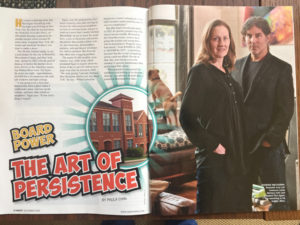 Doing
Doing  Watching Apple’s abandonment of the professional / developer market as they continue their obsessive quest of form over function, although I don’t write about it much these days, aside from
Watching Apple’s abandonment of the professional / developer market as they continue their obsessive quest of form over function, although I don’t write about it much these days, aside from  Close to finalizing an original chocolate and toffee cookie recipe I’ve been working on for three years. Certain people delighted in making fun of me for doing this. Now outside parties are asking about bringing it to market.
Close to finalizing an original chocolate and toffee cookie recipe I’ve been working on for three years. Certain people delighted in making fun of me for doing this. Now outside parties are asking about bringing it to market.
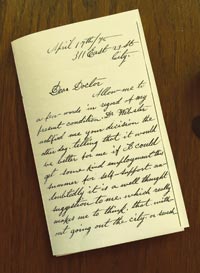

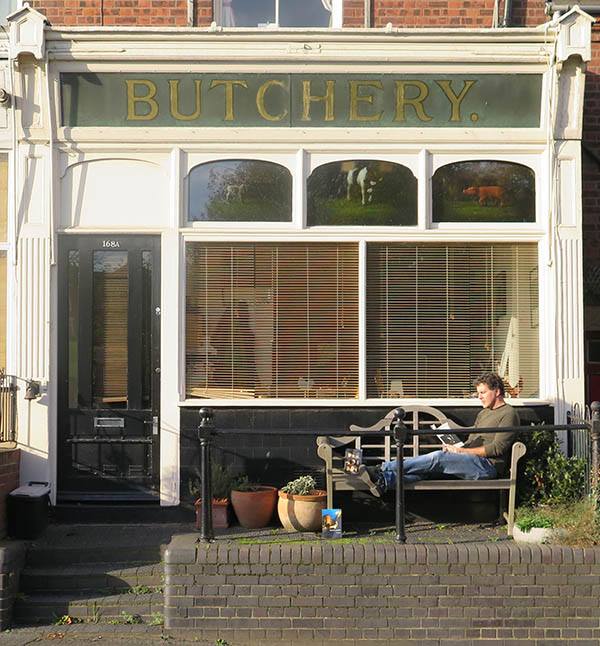
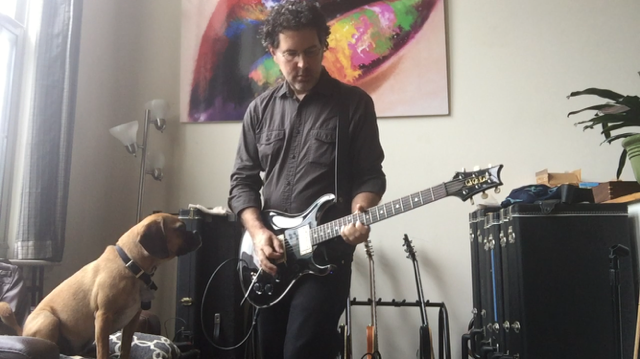
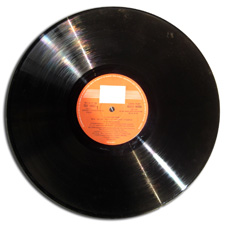 Your recent offerings suck. That’s right. They suck. My ears make my wallet vote. If my choices are between another Katy Perry-type freeze dried, overproduced studio creation developed by an extensive team and a band with nine guys who all look, sound, and dress like 19th century Mennonite farmers, I’m out. Like Hollywood, you, the major recording labels, continually play it safe, offering nothing different, nothing compelling, nothing with a gram of emotional honesty.
Your recent offerings suck. That’s right. They suck. My ears make my wallet vote. If my choices are between another Katy Perry-type freeze dried, overproduced studio creation developed by an extensive team and a band with nine guys who all look, sound, and dress like 19th century Mennonite farmers, I’m out. Like Hollywood, you, the major recording labels, continually play it safe, offering nothing different, nothing compelling, nothing with a gram of emotional honesty.